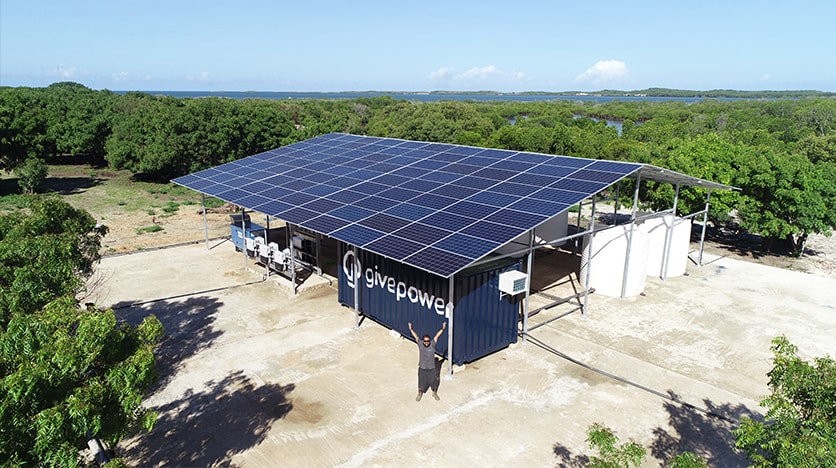WaterCare
At WaterCare, we're committed to ending global water scarcity.
Read about water scarcity, the causes and our solutions to tackle the problem at its core.
We care because no one should face a water scare.

We're leveraging emerging technologies so that everyone can drink potable water.
The Problem
1.1 billion people lack access to water and 2.7 billion experience water scarcity at least one month a year.
By 2025, two-thirds of the world’s population may be facing water shortages.
Inadequate sanitation—a problem for 2.4 billion people—can lead to deadly diseases and water-borne illnesses.
Causes

Solar desalination plants
Combining the power of the sea and the sun, solar-powered desalination plants provide independence and resilience
Saline water can be rendered potable once it's been desalinated. Using solar energy from panels, reverse osmosis desalination systems can be powered.
We've decided on reverse osmosis solar installations because they can remove contaminants, such as arsenic and uranium, and minerals, such as calcium carbonate.
This provides a reliable and clean water to remote communities lacking a town water supply or electricity grid.
How does this work?
Groundwater or surface water is pumped into a tank with an ultrafiltration membrane to remove viruses and bacteira. Then, in the 2nd stage, water undergoes nanofiltration and reverse osmosis to remove salts and trace contaminants.
Our solar panels track the Sun and power the pumps needed to process the water. Because solar panels can't power the pumps during the night, WaterCare proposes the use of batteries and thermal energy storage systems to improve overall efficiency.
The now filtered water can be stored in a reservoir, ready to be used at will.

Smart irrigation systems
WaterCare smart irrigation controllers monitor soil conditions and humidity to adjust the watering schedhule and reduce water consumption
Internet of Things solutions to agriculture and farming can help optimize water quantity to save resources and provide the best care for crops. Sensor-based technologies collect data about soil and update a crop status and transmit this information to farm irrigation systems.
How does this work?
For sustainable agriculture, IoT devices can automate the irrigation process by analyzing the moisture of soil and weather. WaterCare does this by using Gravity: Analog Capacitive Soil Moisture Sensor - Corrosion Resistant and Arduino to get data from a garden plot or farm. We'll collect information about dampness,
temperature and moisture with our sensors.

Rainwater harvesting and recycled wastewater
We're collecting water from rain and wells to meet the water needs of people everywhere.
